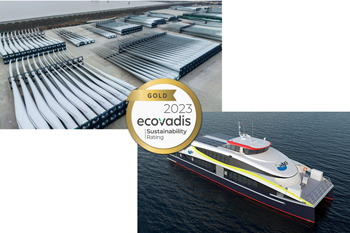Search Results
Showing 91 – 100 of 2660 results
High-pressure gas storage vessels represent one of the largest and fastest-growing markets for advanced composites, particularly for filament-wound carbon fiber composites. Although they are used in self-contained breathing apparatuses and provide oxygen and gas storage on aerospace vehicles, the primary end markets are for storage of liquid propane gas (LPG), compressed natural gas (CNG), renewable natural gas (RNG) and hydrogen gas (H2).
Filament winding is a specialized technique used in composite manufacturing, involving the precise and automated winding of continuous fibers onto a rotating mandrel or mold. This method allows for the creation of strong and seamless structures, optimizing the alignment and orientation of the fibers to meet specific design requirements. Filament winding is employed in producing cylindrical or conical composite parts, such as pipes, pressure vessels, and aerospace components, enabling engineers to tailor the strength, stiffness, and performance characteristics of the final product.
Processes in composites manufacturing encompass a diverse array of techniques employed to fabricate composite materials. These processes include methods like hand layup, where layers of resin and reinforcement materials are manually placed, and vacuum infusion, where a vacuum draws resin into a preform. Other techniques like compression molding, filament winding, and automated methods such as 3D printing are utilized to create intricate and specialized composite structures. Each process offers unique advantages in terms of precision, scalability, and efficiency, catering to diverse industry needs. As technology advances, newer methods are emerging, promising faster production cycles, reduced waste, and increased customization, driving the evolution of composite manufacturing towards more sophisticated and versatile methodologies.
The wind energy market has long been considered the world’s largest market, by volume, for glass fiber-reinforced polymer (GFRP) composites — and increasingly, carbon fiber composites — as larger turbines and longer wind blades are developed, requiring higher performance, lighter weight materials. The outer skins of wind and tidal turbine blades generally comprise infused, GFRP laminates sandwiching foam core. Inside the blade, rib-like shear webs bonded to spar caps reinforce the structure. Spar caps are often made from GFRP or, as blade lengths lengthen, pultruded carbon fiber for additional strength.
Claiming significantly higher power generation capacity than traditional blades, Xenecore aims to scale up its current monocoque, fan-shaped wind blades, made via compression molded carbon fiber/epoxy with I-beam ribs and microsphere structural foam.
JEC World 2024: Exel Composites offers attendees a chance to engage with company experts and learn more about continuous composite manufacturing processes across various industries.
The secured contract will see the delivery of 107 wind turbines with 14-MW capacity for the 1.5-GW deal.
Sany reports that it has adopted an optimized airfoil design with greater thickness and a blunt trailing edge to augment strength and stability.
Research from Renewables Consulting Group, as reported by NA Wind Power, finds the U.S. offshore wind market has moved into the construction phase for large-scale projects.
Gurit announces an EcoVadis Gold rating, a collaboration on Hong Kong high-speed passenger ferries and work with the OptiCore Innovation Project.
Current offshore numbers are projected to expand fivefold to 250 GW of active capacity and 30,000 wind turbines by 2030, with significant investment in shipping fleets needed.
APQP4Wind’s quality assurance methodology is designed to reduce risk and lower the costs of poor quality, which Exel plans to apply to all of its global wind production sites where composite components are manufactured.
Spanish-based engineering firm will accelerate technical development and innovation activity of Gazelle’s floating offshore wind platform.
Large offshore wind farm in the U.K. will have 44 out of 100 of its wind turbines equipped with recyclable composite blades, the largest order to date.









